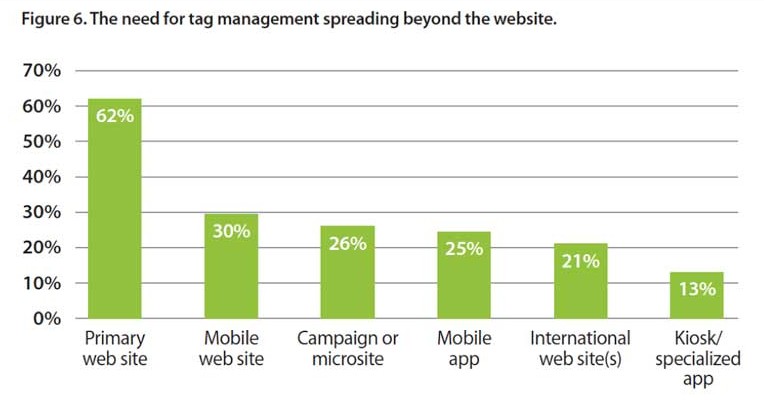Tags are small snippets of code that add new features or functionalities to your site, like web analytics tracking, remarketing or conversion tracking, optimization and testing services, and many other marketing technologies. A tag, sometimes called a pixel, is a piece of JavaScript code that most vendors require users to integrate into their web and mobile sites to perform a task such as advertising, live chat, and product recommendations. In addition to supporting your digital marketing efforts, these ‘tags’ collect unique visitor behaviour information. A tag management system (TMS) makes it simple for users to implement, manage, and maintain tags on their digital properties with an easy to use web interface. Using a TMS is integral to providing a foundation for your organization’s data collection and governance needs while helping to drive better customer experiences. Tag management is not the most exciting name for a crucial technology, often being confused with blog tags, tag clouds or search engine meta tags. Tag management is not related to any of those. Tags are a means to collect and move data between a website or mobile app session, and the technology vendor. Nevertheless, that is how the industry evolved, and the name stuck, although it is quickly becoming part of a larger data conversation. Tag management has moved rapidly to help manage tags and data outside of the traditional website. Companies are using tag management to control and manage their customer data and vendors across web, mobile, IoT, and connected devices. One thing to note about mobile apps is that instead of using a master tag from the tag management provider, they leverage a library that serves the same essential purpose. Once the library is added to the mobile app, marketers and mobile developers can add analytics and other solutions without having to recertify the app in the mobile app marketplaces. Tag management systems control the deployment of all other tags and mobile vendor deployments via an intuitive web interface, without requiring any software coding. Tag management systems make it easy to add, edit or remove any tag with point and click simplicity. Enterprise tag management solutions – compared to free tag managers – also deliver a variety of advanced capabilities, such as customization, data management, privacy controls, mobile application support and much more. Because of its strategic position in the data supply chain, tag management systems have rapidly evolved to become a key part of the foundation for data management and collection. A tag management system collects first party data. First party data is considered the most powerful and relevant data because it is the behaviors and interactions you compile on visitors. This robust first party data can be used to create unified customer profiles, driving more timely and relevant omnichannel experiences while fueling business intelligence initiatives and streamlining data warehouse projects.



No comments:
Post a Comment